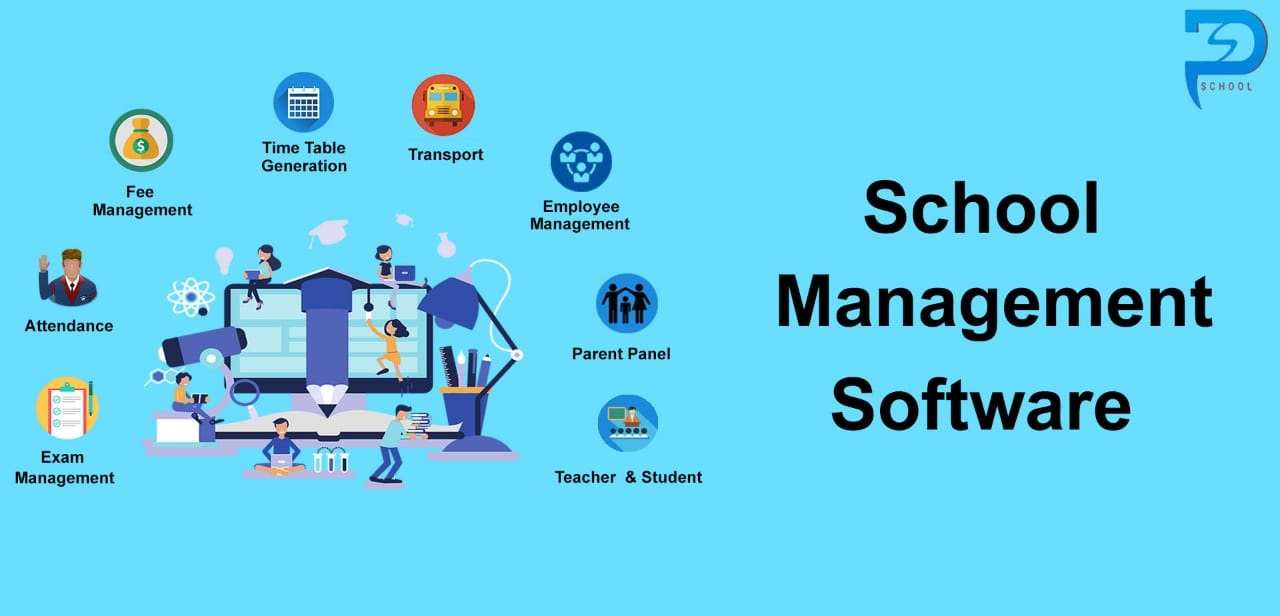ERP Software for Education: Streamlining Administrative Tasks and Enhancing Efficiency
Enterprise Resource Planning (ERP) software has revolutionized the way businesses operate, and its impact on the education sector is no different. ERP solutions for educational institutions are designed to organize, monitor, and simplify administrative procedures, making it easier for schools to manage their operations efficiently. In this blog post, we will explore the role of ERP software for education and discuss its benefits for educational institutes.
What is ERP Software?
ERP software is a comprehensive
suite of applications that integrates various functions within an organization,
such as finance, human resources, supply chain management, and customer
relationship management. It helps streamline processes, improve data accuracy,
and enhance decision-making by providing real-time access to information across
different departments.
 |
| ERP Software For Education |
Benefits of ERP Software for Education
1. Improved efficiency: ERP systems automate many manual
tasks, reducing the time and effort required for administrative tasks. This
frees up staff members to focus on more strategic activities, such as
curriculum development and student engagement.
2. Enhanced communication: With an ERP system, all
departments within a school can access the same information in real-time. This
promotes better communication and collaboration among staff members, ensuring
that everyone is working towards the same goals.
3. Streamlined financial management: ERP software provides a
centralized platform for managing financial operations, including budgeting,
accounting, and reporting. This helps schools maintain accurate financial
records and make informed decisions about resource allocation.
4. Efficient student management: ERP systems can track
student attendance, grades, and other important information, making it easier
for schools to monitor student progress and identify areas where additional
support may be needed.
5. Improved resource allocation: By providing a
comprehensive view of an institution's resources, ERP software helps schools
allocate resources more effectively, ensuring that they are used in the most
efficient way possible.
6. Simplified reporting: ERP systems generate reports based
on real-time data, allowing schools to quickly identify trends and make
data-driven decisions. This helps institutions stay ahead of potential issues
and respond proactively to changes in the educational landscape.
7. Better data security: ERP software provides a secure
platform for storing and managing sensitive data, such as student records and
financial information. This helps schools protect their data from unauthorized
access and ensures compliance with data protection regulations.
Implementing an ERP System in
Education
When implementing an ERP system
in an educational institution, it is essential to choose a solution that is
tailored to the specific needs of the sector. Industry-specific ERP systems are
designed to address the unique challenges faced by educational institutions,
such as managing student records, tracking attendance, and managing financial
operations.Here are some key considerations when implementing an ERP system in
education:
1. Define your requirements: Before selecting an ERP
solution, it is crucial to identify the specific needs of your institution.
This will help you choose a system that is well-suited to your requirements and
provides the necessary functionality.
2. Involve stakeholders: Engage staff members, students, and
other stakeholders in the decision-making process to ensure that the chosen ERP
system meets their needs and expectations.
3. Choose a reputable provider: Select an ERP provider with
a proven track record in the education sector and experience working with
institutions similar to yours.
4. Ensure adequate training: Provide comprehensive training
to staff members to ensure they are comfortable using the new system and can
make the most of its features.
5. Monitor progress: Regularly review the performance of
your ERP system to identify areas for improvement and ensure that it continues
to meet the needs of your institution.
Conclusion
ERP software has the potential to
transform the way educational institutions operate, streamlining administrative
tasks, enhancing efficiency, and improving overall performance. By implementing
an industry-specific ERP system tailored to the needs of the education sector,
schools can benefit from improved communication, resource allocation, and data
security, ultimately leading to better outcomes for students and staff alike. Learn more

Comments
Post a Comment